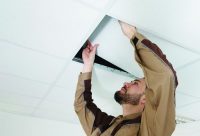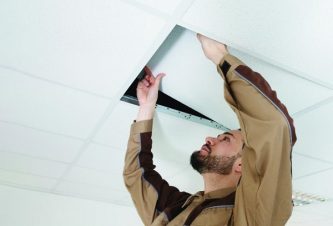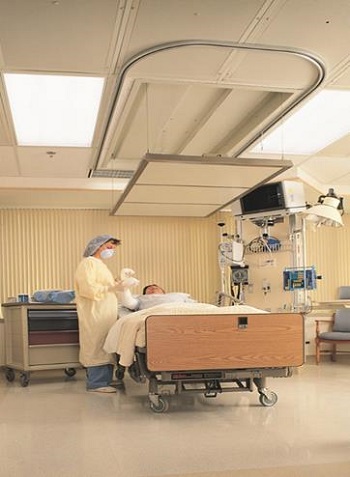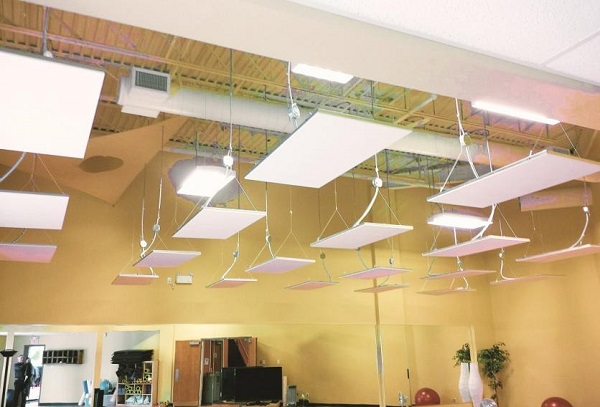Keeping occupants of a building or facility warm and comfortable is a year-round priority. Whether the leaves are turning, snow is falling or spring is blooming, maintaining the right temperature is key to ensuring occupants are happy and productive. Some buildings – such as yoga studios, swimming pools, hospitals and laboratories – require spaces to Read more
QMark

Keeping occupants of a building or facility warm and comfortable is a year-round priority. Whether the leaves are turning, snow is falling or spring is blooming, maintaining the right temperature is key to ensuring occupants are happy and productive.
Some buildings – such as yoga studios, swimming pools, hospitals and laboratories – require spaces to be kept at specific temperatures to ensure optimal performance for specialized activities. Yogis and swimmers perform better when they are warm, patients heal faster when they are comfortable, and researchers gather more accurate results when temperatures are constant.
 For these and other types of retail and office facilities with unique heating demands, radiant ceiling panels are an optimal choice for providing consistent warmth without disrupting activities. The right radiant ceiling panels ensure a high level of comfort, and can be incorporated into the interior’s seamless warmth.
For these and other types of retail and office facilities with unique heating demands, radiant ceiling panels are an optimal choice for providing consistent warmth without disrupting activities. The right radiant ceiling panels ensure a high level of comfort, and can be incorporated into the interior’s seamless warmth.
Hidden Advantage
In a yoga studio or hospital, for example, the right interior furnishings and design are vital to creating a positive experience for occupants. Yoga studios are often simplistic in design to help calm those who are practicing, allowing them to focus on their poses and their breath. Similarly, studies have shown that the way a hospital is laid out and decorated has a significant impact on patient care and well-being.
Therefore, the addition of radiant ceiling panels should not alter these well-crafted designs, but rather blend the units into the existing surroundings as effortlessly as possible. Consider radiant ceiling panels specifically designed to act as invisible sources of warmth, able to match the color scheme of a room perfectly with paint or silkscreens so occupants don’t even realize they are present.

But hidden warmth refers to more than just visual customization. Areas such as yoga studios, locker rooms, office conference rooms, hospital ICUs and laboratories also want to keep their rooms quiet and without unnecessary drafts. A heating unit that produces strong air flow can spread dust particles and debris, while loud fans are disruptive to office productivity, quiet meditation and healing.
Radiant ceiling panels with no moving parts – such as fans – create no air movement or excess background noise, and therefore require no additional maintenance. Customizable options from QMark or Berko can be sized and colored to meet specific dimensions and themes, for a quick and silent addition.
Personalized Warmth
A customizable heating unit should not only match the look of a facility, but its specific temperature requirements as well. One of the many benefits of radiant ceiling panels is their ability to provide primary or supplemental comfort. This means a building’s primary source of heat may be enhanced in specific spaces throughout where higher temperatures are required without overheating the rest of the facility.
In a yoga studio, some rooms may need to surpass 100 degrees Fahrenheit, while others can remain at a more standard room temperature. In lobbies, bathrooms and hallways as well, specific rooms may call for higher temperatures to enhance comfortability.

Radiant ceiling panels are able to offset perimeter heat loss from doors, windows or other sources of drafts. Likewise, they can provide primary heat to an entire space such as a yoga room without altering adjacent spaces’ temperatures. This ensures each space throughout the facility can have the temperature customized for the occupants’ needs.
Materials Matter
To ensure radiant ceiling panels produce silent, invisible heat while keeping occupants safe, they must be made with the right materials. Galvanized or aluminized steel housing provides a stable base to hold the panels. Encapsulated casted element assures the units deliver uniform temperature across the surface, while increasing the panels’ longevity. Stability T-bar grip clips that can guarantee the panels stay intact during heavy storms or earthquakes are also important, as well as the use of fire retardant materials so there is no added risk in an emergency.
Some facilities may require specialized materials such as a stainless steel construction for chlorine storage areas that seal tightly with connectors and silicone. Exterior moisture and condensation do not affect heating panel performance, but water inside the unit can cause it to fail. Panels in locker rooms or swimming pools should be totally sealed with silicone at the factory before shipment to prevent moisture penetration. High-moisture facilities may also opt for seal-tight connectors and conduit, rather than greenfield flexible conduit and straight connectors.
Conclusion
When reviewing radiant ceiling panels for facilities with specific heating demands, consider all the options available as well as features to personalize. Berko and QMark offer customized radiant ceiling panels for a wide array of facilities looking to heat rooms with unique needs and uses. What may work for a laboratory setting may not be ideal for a yoga studio or swimming pool. Be sure to address all the different details of the space to ensure the needs are met and occupants can enjoy hidden, uninterrupted comfort every day.
Guest Blogger: Jim Herring is the supervisor of Total Custom Solutions & Technical Services at Marley Engineered Products®, a leading North American designer and manufacturer of reliable comfort heating and ventilation solutions for residential, commercial and institutional buildings. Recognized by contractors, architects, engineers and HVAC professionals for providing a wide range of high-performance, reliable heating and ventilation solutions, Marley Engineered Products’ brands include QMark®, Berko®, Fahrenheat® and Leading Edge®. Marley Engineered Products’ manufacturing operations are based in Bennettsville, S.C., with regional sales representatives located throughout the U.S. and an administrative office in Burr Ridge, Ill.
